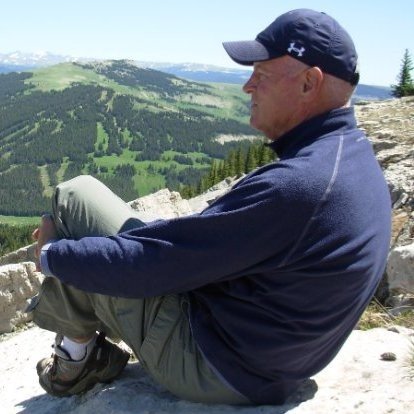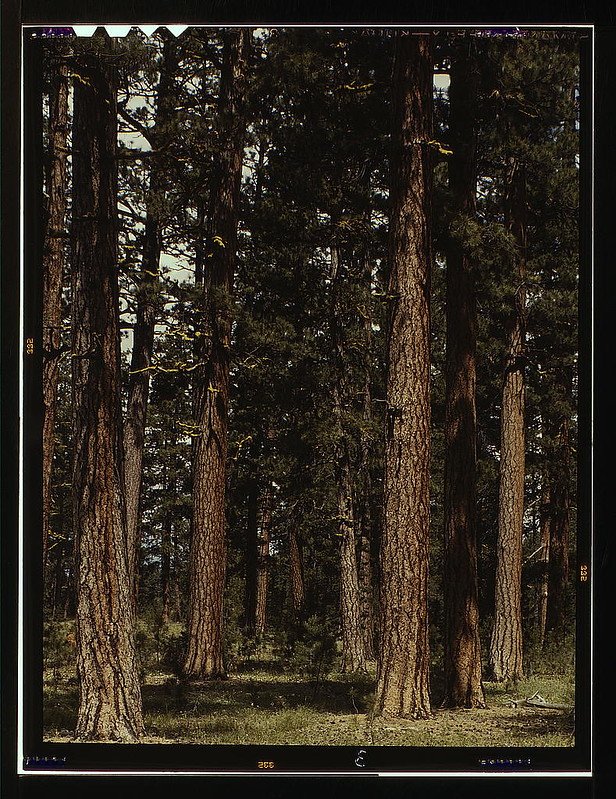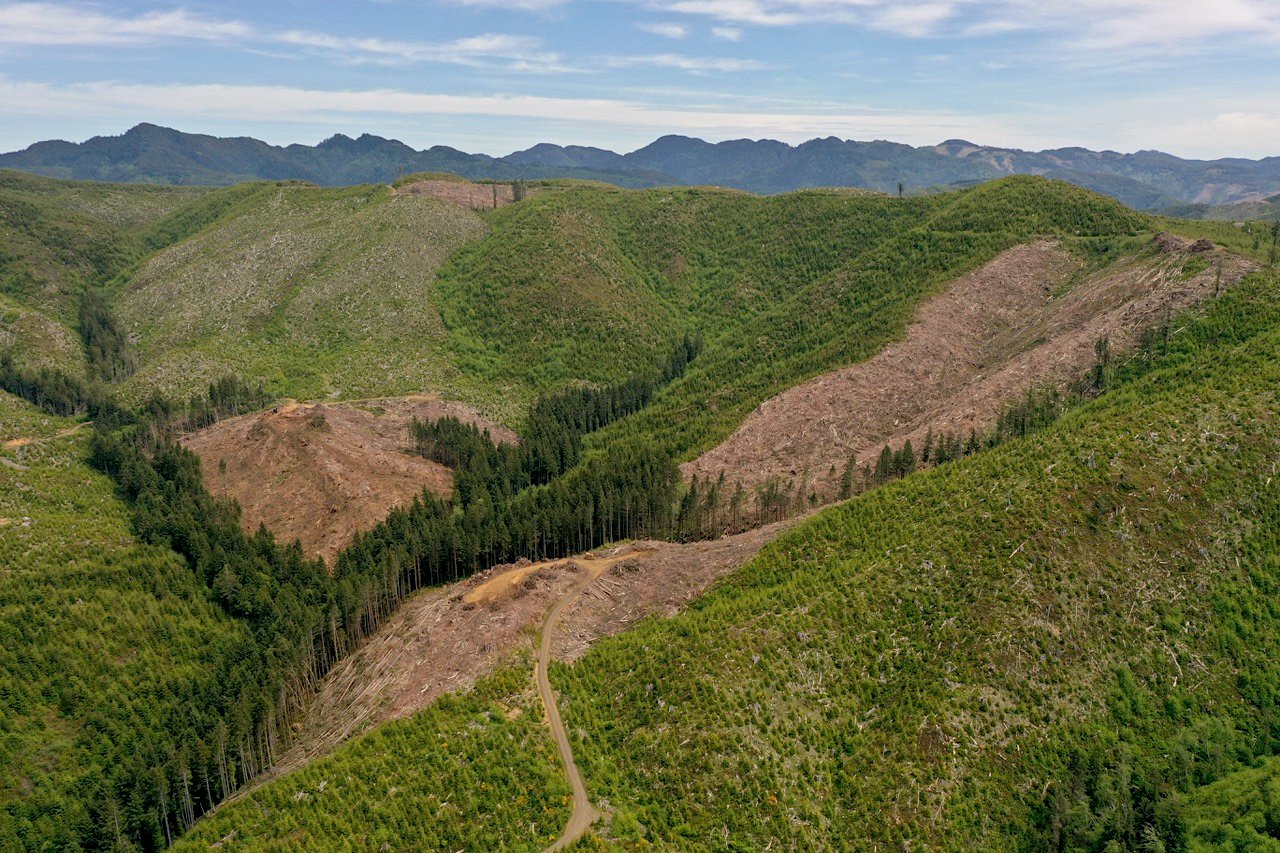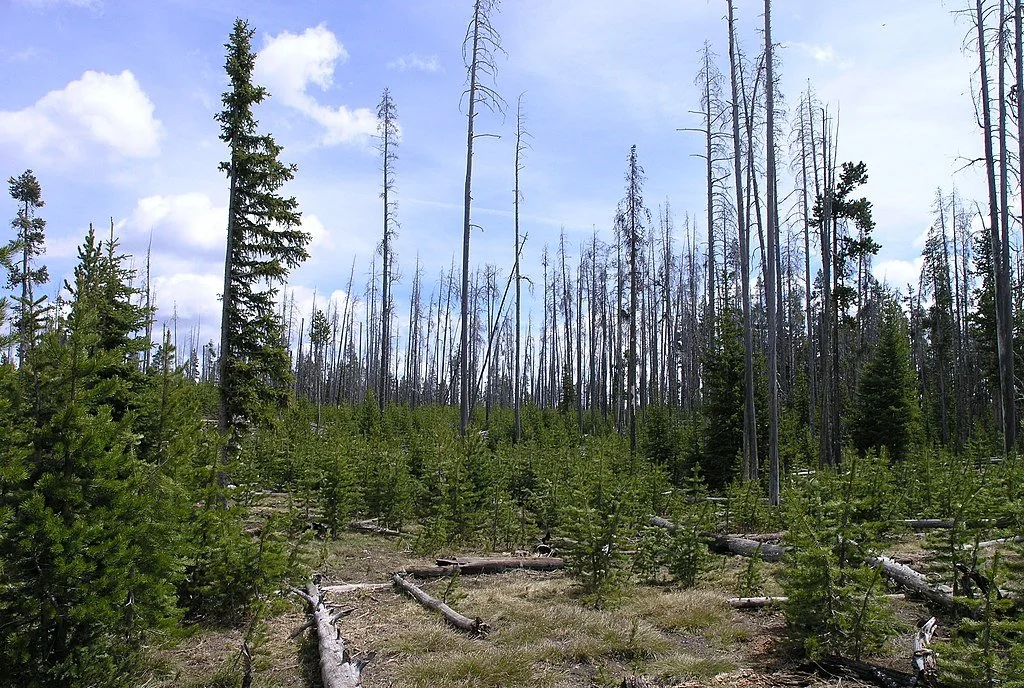Top Line: America’s national forests have lost the greatest inside champion they’ve ever had.
Figure 1. Jim Furnish, 1945–2025. Source: LinkedIn.
I’ve interacted with hundreds of Forest Service employees since I began agitating for wilderness designation of national forest roadless areas in 1975. Of all those hundreds of Forest Service employees, only two really impressed me. Both were forest supervisors on national forests in Oregon. Both were one of a kind. In the end, the Forest Service bureaucracy rejected both.
One was Bob Chadwick, whose star shone brightest while he was supervisor of the Winema National Forest in south-central Oregon in the late 1970s. Bob died in 2015.
The other was Jim Furnish, retired (not really by his choice) deputy chief of the Forest Service. Furnish died on January 11 at his home in New Mexico at age seventy-nine. I knew he was sick but didn’t know how sick. He was on my list to do a “preremembrance” for, essentially a eulogy that the eulogized can read themselves. Alas, procrastination and denial on my part prevented me from telling Jim how much he moved the conservation needle during his life and career, so this remembrance will belatedly honor his enormous contribution.
See Public Lands Blog posts:
• Preremembering Bob Packwood, Oregon Conservationist
• Remembering U.S. Senator Richard L. Neuberger, Oregon Conservationist
• Preremembering Jim Weaver, Oregon Conservationist
• Preremembering Barbara Roberts, Oregon Conservationist
• Preremembering Norma Paulus, Oregon Conservationist
• Preremembering Mary Gautreaux, Oregon Conservationist
• Preremembering Brock Evans, Oregon Conservationist
• Preremembering Jerry Franklin and Norm Johnson, Oregon Conservationists
• Remembering Ecowarrior Dave Foreman, Part 1: The Kalmiopsis Connection
• Remembering Ecowarrior Dave Foreman, Part 2: Moving the Needle
Backdrop: The Forest Service Culture
When I started my wilderness activism, almost all Forest Service employees I met wore metaphorical green underwear underneath their green uniforms. They believed in the agency’s mission at the time: converting “decadent” and “overmature” old-growth forests into thrifty and vigorous monoculture plantations. (I’m pretty confident today that green underwear is a thing of the past in that it is rare to see Forest Service line officers wearing their green outerwear at all.)
The way one advanced in the Forest Service as a line officer (a district ranger reported to a national forest supervisor who reported to a regional forester who reported to “the chief”) was to “get the cut out.” When a “smokey” (Forest Service employee) said “the chief,” their tone of voice changed perceptibly to invoke reverence. Just about every district ranger secretly saw themselves as “the chief,” and all figured they had a good chance of being a regional forester someday.
There is a change that occurs among Forest Service line officers when they realize they won’t ever become “the chief.” Most respond by caring less and riding out their years in the Forest Service until pension time. A few (alas, very few), however, find the realization freeing.
One Exceptional Forester: Bob Chadwick
One of those exceptions was Bob Chadwick. On the Winema, Chadwick acted upon four major matters: empowering women in the agency, treating the Klamath Tribes (from whom much of the Winema was purchased) better, reintroducing fire into fire-dependent ecosystems, and—most dangerously—lowering “the cut” (the planned-for annual timber volume sold). In re the latter, Chadwick sought to protect roadless areas and dramatically lower logging levels.
Alas, this very bright star was soon extinguished. For “the good of the service,” Forest Supervisor Chadwick was “promoted” to be an “executive assistant” to the regional forester in Portland, a position that did not exist before or after Chadwick’s tenure. He was basically told to count paper clips and keep quiet. Instead, Chadwick continued to promote his idea of consensus as a better way to manage public land. He soon left the Forest Service and continued on as a consultant until he died in 2015. Bob was way ahead of his time and the Forest Service crushed him.
Another Exceptional Forester: Jim Furnish
Jim Furnish was in charge of the National Forest System from 1999 to 2002. During his tenure, he was the primary author of the Roadless Area Conservation Rule, over the objections of almost every Forest Service line officer save the top line officer, who was the only one who counted, Chief Mike Dombeck. The roadless rule, covering 58 million acres of the National Forest System’s 193 million acres, prohibits road building and almost all kinds of logging there. (Alas, some loopholes exist.) Before becoming deputy chief, Furnish transformed the Siuslaw National Forest in Oregon’s Coast Range from one of the most heavily logged national forests anywhere to one of the least logged.
Born in Tyler, Texas, Furnish got his first Forest Service job as a seasonal on the Tiller Ranger District of the Umpqua National Forest. As it was 1965 and I was in the fourth grade, our paths didn’t cross until later, when he became forest supervisor of the Siuslaw National Forest, headquartered in Corvallis, from 1991 to 1999.
In between he was a forester on the Black Hills National Forest in South Dakota, a district ranger on the Bighorn National Forest in Wyoming, a staff officer on the San Juan National Forest in Colorado, and appeals coordinator in the chief’s office in Washington, DC. After supervising the Siuslaw, Furnish was appointed deputy chief over the heads and objections of all nine regional foresters, who figured the job should have gone to them.
Furnish’s Tenure on the Siuslaw as an Agency Reformer
Furnish first came to the Siuslaw as deputy supervisor in 1991 and soon was appointed supervisor. The Siuslaw, like most national forests, was in turmoil. It was the home of both reformers who could see the forest beyond the logs-to-be and some severely unreconstructed timber beasts who sang “Timber über alles” coming and going from work, during work, and in their dreams. One Siuslaw wildlife biologist told me in the late 1980s that the only good biologists in the Forest Service were assholes. (Charlie was one of them; I loved him for it.)
Soon after becoming supervisor, Furnish forced four of the biggest timber assholes out of his office; three were given early retirement and one took a demotion.
Things began to change on the Siuslaw. The reformer Furnish soon benefited from a huge tailwind in the form of a federal court injunction against essentially all federal logging within the range of the northern spotted owl. The Pacific Northwest forest wars had gone from guerilla skirmishes to epic set-piece battles.
It was a good time to be an agency reformer. As Furnish later wrote in his memoir, Toward a Natural Forest: The Forest Service in Transition:
Prior to Judge Dwyer’s ruling, the Forest Service had inexorably, incrementally sought to tame the vast and valuable forests of the Pacific Northwest. Aggressive logging of public land rested on a foundation of a growing nation’s demand for wood. And the nation trusted the Forest Service as long as its policies seemed consistent with public values. But public values can change. Distrust can grow.
Following the war in Vietnam, a new generation viewed government with increasing skepticism and cynicism. Fewer and fewer people accepted sweeping vistas dominated by clear-cuts and new roads. Instead, they valued naturalness, clean water, abundant fish and wildlife, and a deep sense of connection with the land. They were anguished at what the Forest Service was taking from the forest at the expense of future generations.
You can plant all the trees you want, but you can’t make a forest. That’s God’s business.
Figure 2. Any reforming Forest Service employee today should read Furnish’s memoir. So too should the reconstructed (no longer unreconstructed, but still) timber beasts, who should ask themselves if anyone would bother to read their memoir if they bothered to write one. Source: Oregon State University Press.
By the way, most retired line officers in the Forest Service hated Jim Furnish, as they had made their careers by being timber beasts. Furnish was a messenger they wanted to shoot before, during, and after a district court judge and a US president told the Forest Service to obey the law.
During his tenure on the Siuslaw, Furnish did many remarkable things, but we shall focus here on timber, roads, and fish.
Changing Timber Targets
When Furnish got to the Siuslaw, the new forest plan set a target of 215 million board feet (mmbf) annually, down from 320 mamba throughout the 1980s.
(A programmed timber target was one thing; the agency was in the habit of even more logging in the name of salvage, etc. I remember the actual annual losses reaching in excess of 450 mamba. I remember that particular number because it was what Congress required the Forest Service to annually sell from the Tongass National Forest in Alaska under a law passed in 1980. The Siuslaw has 623,000 acres, while the Tongass has more than 15 million acres—equal to all national forest land in Oregon.)
President Clinton’s Northwest Forest Plan dropped the timber target on the Siuslaw to 23 mmbf from 215 mmbf. A later remapping of riparian reserves (no-cut stream buffers with a minimum of 300 feet on each side) found there were significantly more highly dissected streams in the Oregon Coast Range than first thought, and this new analysis reduced the possible timber target to ~8 mmbf. Between the ESA-protected northern spotted owl and marbled murrelet and various imperiled stocks of Pacific salmon, almost all of the Siuslaw National Forest was protected as either late-successional (mature and old-growth forest) reserves or riparian reserves, respectively.
Furnish directed the logging that could be done on the Siuslaw to focus on 120,000 acres of plantations that were established after the mature and old-growth forest was clear-cut. On those plantations, only one species, Douglas-fir, had been planted, and herbicides were often used to ensure nothing competed. The result was Douglas-fir plantations of even height and even spacing, more akin to a cornfield than a forest.
Under Furnish the Siuslaw went big on variable-density thinning, which had the objective of putting the plantations on a path to once again become mature and old-growth forests. As trees in Oregon’s Coast Range grow almost all year and generally in good soils, the logs that came from such thinning were commercially valuable to those mills that had retooled away from old growth. Most had. Not as profitable as liquidating old growth, but that ship had sailed.
Closing Roads and Helping Fish
By the time the spotted owl hit the fan in 1990 and the injunction was imposed, the Siuslaw had 2,700 miles of roads—2.7 miles of road for every square mile of land. Under Furnish, two-thirds of all the roads were closed to the public, relieving the federal treasury of the road maintenance burden and relieving wildlife of all those intrusions on what they called home.
Most Siuslaw timber roads were engineered enough to get the big logs out and to the mill but not to endure during massive storm events. Their damned culverts were engineered to allow big logs to pass over them but neither large amounts of water and large woody debris during big storm events nor fish to pass through them.
Under Furnish, the Siuslaw embarked on a massive program of making the roads hydrologically invisible to the watershed, primarily by doing two things: (1) ripping out undersized culverts to allow water and debris to flow freely, and (2) water barring the roads so the water falling on the road very soon was flowing downhill off the road and not into undersized ditches that fed those undersized culverts. The Siuslaw staff compared water-barred and un-water-barred roads, and the barred roads didn’t erode into huge landslides into creeks.
The result was improved water quality, restored fish passage, and enhanced fish habitat.
After the Fall
After leaving the Forest Service, Furnish continued to agitate from without as he had done from within. In his “retirement,” he served on the boards of several organizations, including WildEarth Guardians, Wildlands CPR, Geos Institute, and Evangelical Environmental Coalition. He was also a close advisor of the Climate Forest Campaign. He helped focus media attention on mature and old-growth forests everywhere and in particular on the Forest Service mismanaging (overcutting) his beloved Black Hills National Forest in South Dakota.
Furnish summed up his tenure at the Forest Service thusly: “The spotted owl crisis, and my years on the Siuslaw National Forest, offered many circumstances and opportunities to confront troubling realities and foster profound change.”
Thank you, Jim.
Bottom Line: Jim Furnish illustrated that although it is far too rare, a person can enter the federal bureaucracy and lease as a public servant who changed it for the better.
For More Information
American Forests. February 2, 2016. Jim Furnish, retired deputy chief, USDA Forest Service (web page).
Family of Jim Furnish. 2025. Official Obituary of James “Jim” Richards Furnish.
Furnish, Jim. 2015. Toward a Natural Forest: The Forest Service in Transition. Oregon State University Press, Corvallis.
Heller, Marc. January 14, 2025. “Logging limits pioneer dies at 79.” Greenwire.




















